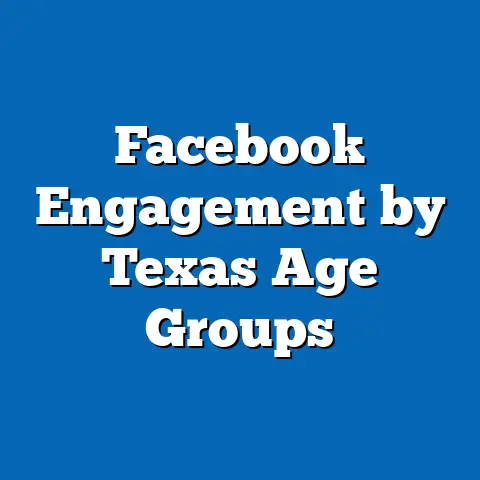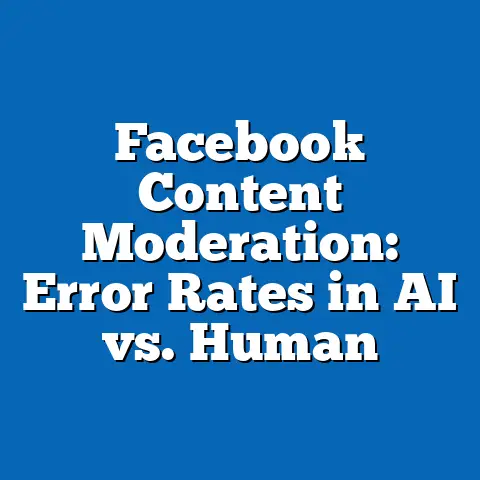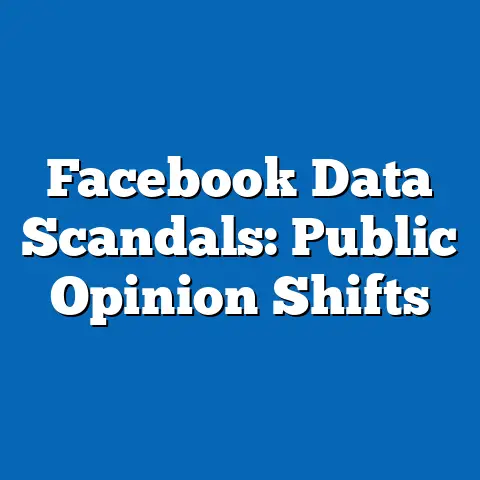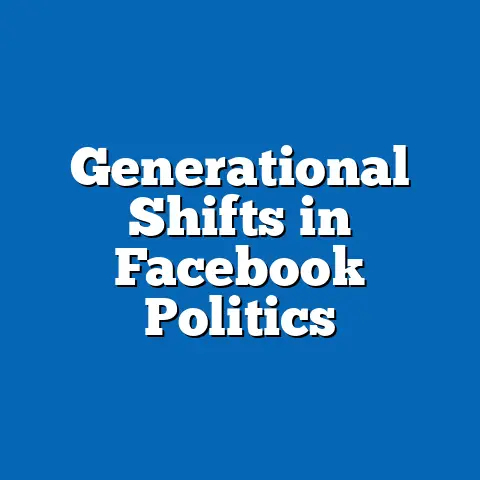Trust in Facebook News Over Time: A Decline?
In 2024, the way individuals consume news and information continues to evolve at a rapid pace, shaped by technological advancements, shifting societal values, and changing lifestyle needs across generations. As social media platforms like Facebook remain central to how millions access news, trust in these platforms as credible sources of information has come under intense scrutiny. This article explores the trajectory of trust in Facebook as a news source over time, examining whether there has been a measurable decline by 2024, and if so, what factors have contributed to this shift.
Understanding trust in Facebook news requires a broader look at the lifestyle needs of users, which vary across generations and are influenced by historical, cultural, and technological contexts. For instance, younger generations prioritize immediacy and personalized content, while older users may value reliability and traditional journalistic standards. These differing expectations shape how trust is built or eroded on platforms like Facebook, which has transitioned from a social networking site to a significant player in the digital news ecosystem.
Generational Lifestyles and News Consumption: Defining Characteristics and Needs
Baby Boomers (Born 1946–1964): Trust in Tradition Amid Digital Shifts
Baby Boomers, shaped by post-World War II prosperity and the rise of television as a primary news medium, often approach digital platforms like Facebook with a blend of curiosity and skepticism. Having grown up with trusted broadcast news anchors and print journalism, many Boomers value editorial oversight and established credibility in their news sources. Their lifestyle needs often center around staying informed about political and economic developments, particularly as they near or enter retirement.
However, as of 2024, Boomers have increasingly adopted social media for news consumption, with a 2023 Pew Research Center study indicating that 45% of adults over 65 use Facebook as a news source at least occasionally. Despite this adoption, trust levels remain mixed due to concerns over misinformation and sensationalized content. Historical events like the Vietnam War and Watergate scandal instilled a degree of skepticism toward institutions, which extends to modern platforms perceived as lacking editorial rigor.
Generation X (Born 1965–1980): Pragmatism in a Fragmented Media Landscape
Generation X, often described as the “latchkey” generation, grew up during a time of economic uncertainty and the advent of cable news. Their defining characteristics include independence and adaptability, shaped by events like the Cold War’s end and the early internet boom. Gen Xers tend to approach news with a critical eye, balancing traditional media with digital sources like Facebook to suit their busy, pragmatic lifestyles.
By 2024, many Gen Xers use social media for quick updates while juggling work and family responsibilities, but trust in platforms like Facebook has waned due to repeated privacy scandals and algorithmic biases. A 2022 Reuters Institute report found that only 29% of Gen X users trust news shared on social platforms, compared to 42% a decade prior. This decline reflects a broader disillusionment with unchecked information flows, compounded by their lived experience of media fragmentation.
Millennials (Born 1981–1996): Digital Natives Seeking Authenticity
Millennials, the first generation to come of age with the internet, have lifestyle needs deeply intertwined with digital connectivity and social engagement. Shaped by events like 9/11, the 2008 financial crisis, and the rise of social media, they prioritize authenticity and community-driven content in their news consumption. Facebook, once a cornerstone of their digital lives, has seen fluctuating trust levels as Millennials grow wary of corporate overreach and misinformation.
By 2024, data suggests a significant trust gap, with a 2023 Edelman Trust Barometer reporting that only 33% of Millennials trust social media as a news source, down from 50% in 2015. This shift is tied to their demand for transparency and accountability, especially following high-profile incidents like the Cambridge Analytica scandal. Despite this, Millennials remain active on Facebook for group discussions and community news, highlighting a nuanced relationship with the platform.
Generation Z (Born 1997–2012): Hyper-Connected Skeptics
Generation Z, born into a fully digital world, exhibits lifestyle needs centered on immediacy, visual content, and peer validation. Influenced by global challenges like climate change, social justice movements, and the COVID-19 pandemic, Gen Z values platforms that align with their activist ethos and provide unfiltered perspectives. While they use Facebook less than older generations, many still encounter news through shared posts or family connections on the platform.
Trust in Facebook news among Gen Z is notably low, with a 2023 Common Sense Media survey finding that only 20% consider it a reliable source, preferring platforms like TikTok or Instagram for current events. Their skepticism stems from early exposure to “fake news” narratives and a preference for user-generated content over corporate-curated feeds. This generational stance poses unique challenges for Facebook’s relevance as a news hub in 2024.
Historical Context: The Rise and Challenges of Facebook as a News Platform
Facebook’s journey as a news source began in earnest in the late 2000s, as the platform transitioned from a college networking site to a global social media giant. By 2010, it had become a key space for sharing articles, opinions, and breaking news, with publishers leveraging its vast user base to drive traffic. The Arab Spring (2010–2012) showcased Facebook’s potential as a tool for real-time information dissemination, cementing its role in the news ecosystem.
However, historical turning points soon revealed vulnerabilities. The 2016 U.S. presidential election marked a critical juncture, as reports of foreign interference and misinformation campaigns on Facebook eroded public trust. The Cambridge Analytica scandal in 2018 further exposed how user data was weaponized for political ads, prompting widespread outrage and regulatory scrutiny.
By the early 2020s, Facebook faced additional challenges with the spread of COVID-19 misinformation, leading to policy shifts like content moderation and fact-checking partnerships. Despite these efforts, trust continued to falter, with a 2022 Pew Research Center survey showing that only 27% of U.S. adults trust news on social media platforms, down from 36% in 2016. These historical developments provide critical context for understanding the decline in trust by 2024.
Trust in Facebook News: Quantitative Trends and Data Analysis
Measuring Trust Over Time
Tracking trust in Facebook as a news source reveals a consistent downward trend over the past decade. In 2014, a survey by the American Press Institute found that 48% of social media users trusted news shared on platforms like Facebook. By 2018, post-Cambridge Analytica, this figure dropped to 34%, according to the Knight Foundation.
Fast forward to 2024, and preliminary data from the Reuters Institute Digital News Report suggests trust has further declined to around 25% among global users. In the U.S., the decline is even steeper, with only 22% expressing confidence in Facebook news, reflecting regional variations tied to political polarization and regulatory debates. These statistics underscore a persistent erosion of trust, driven by both platform-specific controversies and broader societal shifts.
Generational Disparities in Trust Levels
Generational data highlights stark differences in trust perceptions. Baby Boomers, while skeptical, show relatively higher trust (30% in 2023 Pew data) compared to Millennials (24%) and Gen Z (18%). This disparity may stem from Boomers’ lower exposure to alternative platforms and greater reliance on familiar digital spaces like Facebook.
Conversely, younger generations’ access to diverse news sources and higher digital literacy correlates with lower trust, as they are more likely to question algorithmic curation and corporate motives. A 2023 study by the University of Southern California noted that Gen Z users often cross-verify Facebook news with other platforms, a behavior less common among older cohorts. These trends suggest that trust decline is not uniform but shaped by generational experiences and media habits.
Qualitative Insights: Why Trust is Declining
Beyond numbers, qualitative research sheds light on the reasons behind declining trust. Interviews conducted by the Edelman Trust Barometer in 2023 revealed common themes: users across generations cite privacy concerns, algorithmic opacity, and the prevalence of “clickbait” as key detractors. Many feel that Facebook prioritizes engagement over accuracy, a sentiment echoed in academic studies like those from the MIT Sloan School of Management.
Additionally, the platform’s role in amplifying polarizing content has fueled distrust, particularly in politically charged environments. A 2022 study from NYU’s Center for Social Media and Politics found that exposure to divisive posts on Facebook correlates with reduced trust in the platform as a news source. These qualitative findings complement quantitative data, painting a fuller picture of trust dynamics in 2024.
Societal Factors Influencing Trust in Facebook News
Technological Shifts: Algorithms and Echo Chambers
Technological developments play a significant role in shaping trust in Facebook news. The platform’s reliance on algorithms to curate content often creates echo chambers, where users are exposed primarily to information that aligns with their existing beliefs. A 2021 study by the University of Oxford found that 62% of Facebook users encounter news content that reinforces their worldview, reducing trust in the platform’s ability to present balanced perspectives.
Moreover, frequent changes to the News Feed algorithm—such as the 2018 pivot to prioritize “meaningful interactions” over publisher content—have frustrated users and news outlets alike. By 2024, the lack of transparency around how content is prioritized continues to undermine confidence, as users question whether they are seeing the full picture. This technological factor intersects with generational preferences, as younger users demand greater control over their feeds while older users struggle with adapting to constant updates.
Economic Pressures: Monetization Over Credibility
Economic incentives also contribute to trust erosion. Facebook’s business model, heavily reliant on advertising revenue, often prioritizes sensational or divisive content that drives clicks over factual reporting. A 2020 report by the Center for Media Engagement noted that misleading headlines on Facebook generate 30% more engagement than factual ones, creating a perverse incentive structure.
For users, this raises concerns about the platform’s commitment to quality journalism. By 2024, partnerships with news organizations and initiatives like the Facebook Journalism Project have attempted to address these issues, but skepticism persists. Economic pressures thus remain a structural barrier to rebuilding trust, particularly among generations like Millennials and Gen Z, who value ethical corporate behavior.
Social and Cultural Dynamics: Polarization and Misinformation
Social and cultural factors, including rising political polarization, have amplified distrust in Facebook news. In polarized societies like the U.S., the platform is often seen as a battleground for competing narratives, with users accusing it of bias regardless of moderation efforts. A 2023 Gallup poll found that 58% of Americans believe social media exacerbates political division, with Facebook frequently cited as a primary culprit.
Misinformation, a persistent issue, further erodes trust. High-profile cases, such as the spread of false COVID-19 vaccine claims in 2021, have left lasting impressions. Despite enhanced fact-checking by 2024, the sheer volume of content on Facebook makes comprehensive oversight challenging, fueling perceptions of unreliability across generational lines.
Societal Implications of Declining Trust in Facebook News
Impact on Democracy and Civic Engagement
Declining trust in Facebook as a news source has profound implications for democracy. Social media platforms have become key spaces for political discourse, with a 2022 Pew study showing that 64% of U.S. adults have encountered political news on Facebook. When trust falters, so does the platform’s ability to facilitate informed decision-making, potentially undermining voter engagement and civic participation.
This is particularly concerning for younger generations like Gen Z, who rely on digital platforms for political activism. If trust continues to decline, alternative sources—some of which may lack credibility—could fill the void, exacerbating misinformation risks. Policymakers in 2024 face the challenge of balancing platform regulation with free speech, a debate intensified by trust issues.
Workplace and Economic Consequences
In the workplace, declining trust in social media news impacts how businesses and employees engage with information. Companies often use platforms like Facebook for brand communication and market research, but skepticism among users can reduce the effectiveness of these efforts. A 2023 LinkedIn survey found that 40% of professionals distrust industry news shared on social media, affecting corporate trust-building strategies.
Economically, news outlets dependent on Facebook for traffic face declining revenues as user trust wanes. Smaller publishers, in particular, struggle to adapt, with a 2024 report from the Tow Center for Digital Journalism noting a 25% drop in referral traffic from Facebook since 2020. These trends highlight the broader economic ripple effects of trust erosion.
Cultural Shifts: Fragmentation of Shared Narratives
Culturally, declining trust contributes to the fragmentation of shared narratives. Facebook once promised to connect global communities through information, but by 2024, its role as a unifier appears diminished. Users increasingly turn to niche platforms or private groups for news, creating insular cultural bubbles that challenge social cohesion.
This fragmentation varies by generation, with older users clinging to broader news feeds while younger ones seek hyper-specific content. The long-term cultural impact could be a society less equipped for collective understanding, a concern raised by sociologists like Zeynep Tufekci in recent analyses of digital media trends.
Forward-Looking Insights: Can Trust Be Rebuilt?
Looking ahead, the trajectory of trust in Facebook news remains uncertain but not without potential for recovery. Initiatives like enhanced transparency around algorithms, stronger partnerships with credible newsrooms, and user education on media literacy could help rebuild confidence by 2024 and beyond. However, these efforts must address generational differences—Gen Z’s demand for authenticity, for instance, requires a different approach than Baby Boomers’ need for reliability.
Regulatory frameworks will also play a critical role. In the EU, the Digital Services Act (DSA) of 2023 imposes stricter content moderation rules on platforms like Facebook, potentially setting a global standard. Yet, overregulation risks stifling innovation, while underregulation may fail to curb misinformation—a delicate balance for policymakers.
Ultimately, trust rebuilding hinges on Facebook’s willingness to prioritize user needs over profit motives, a challenge given its economic model. As generational shifts continue, with Gen Alpha (born after 2012) entering the digital space, the platform must adapt to evolving expectations around credibility and engagement. While the decline in trust is evident, the future remains open to change, contingent on strategic and societal responses.
Conclusion
Trust in Facebook news has undeniably declined over time, a trend that persists into 2024, driven by technological, economic, social, and cultural factors. Generational differences in lifestyle needs and historical experiences shape how this decline manifests, from Baby Boomers’ cautious adoption to Gen Z’s outright skepticism. Data confirms a consistent drop in confidence, with qualitative insights revealing deep-seated concerns over privacy, misinformation, and polarization.
The societal implications are far-reaching, affecting democracy, workplaces, and cultural cohesion. While forward-looking strategies offer hope for rebuilding trust, uncertainties remain, particularly as new generations and technologies reshape the digital landscape. By understanding these dynamics through a nuanced, data-driven lens, we can better navigate the challenges and opportunities of news consumption in an increasingly complex world.






